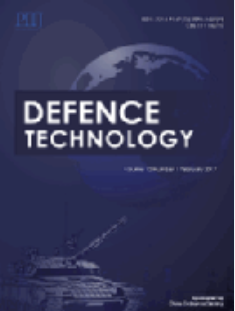Optimal two-channel switching false data injection attacks against remote state estimation of the unmanned aerial vehicle cyber-physical system
IF 5.9
Q1 ENGINEERING, MULTIDISCIPLINARY
引用次数: 0
Abstract
A security issue with multi-sensor unmanned aerial vehicle (UAV) cyber physical systems (CPS) from the viewpoint of a false data injection (FDI) attacker is investigated in this paper. The FDI attacker can employ attacks on feedback and feed-forward channels simultaneously with limited resource. The attacker aims at degrading the UAV CPS's estimation performance to the max while keeping stealthiness characterized by the Kullback-Leibler (K-L) divergence. The attacker is resource limited which can only attack part of sensors, and the attacked sensor as well as specific forms of attack signals at each instant should be considered by the attacker. Also, the sensor selection principle is investigated with respect to time invariant attack covariances. Additionally, the optimal switching attack strategies in regard to time variant attack covariances are modeled as a multi-agent Markov decision process (MDP) with hybrid discrete-continuous action space. Then, the multi-agent MDP is solved by utilizing the deep Multi-agent parameterized Q-networks (MAPQN) method. Ultimately, a quadrotor near hover system is used to validate the effectiveness of the results in the simulation section.
针对无人机网络物理系统远程状态估计的最优双通道切换假数据注入攻击
从虚假数据注入攻击者的角度研究了多传感器无人机网络物理系统的安全问题。FDI攻击者可以在有限的资源下同时对反馈和前馈信道进行攻击。攻击者的目标是在保持以K-L散度为特征的隐身性的同时,最大限度地降低无人机的CPS估计性能。攻击者的资源有限,只能攻击传感器的一部分,攻击者需要考虑被攻击的传感器以及每个时刻攻击信号的具体形式。同时,研究了基于时不变攻击协方差的传感器选择原则。此外,将考虑时变攻击协方差的最优切换攻击策略建模为具有离散-连续混合动作空间的多智能体马尔可夫决策过程(MDP)。然后,利用深度多智能体参数化q网络(MAPQN)方法求解多智能体MDP问题。最后,采用四旋翼近悬停系统验证了仿真部分结果的有效性。
本文章由计算机程序翻译,如有差异,请以英文原文为准。
求助全文
约1分钟内获得全文
求助全文
来源期刊

Defence Technology(防务技术)
Mechanical Engineering, Control and Systems Engineering, Industrial and Manufacturing Engineering
CiteScore
8.70
自引率
0.00%
发文量
728
审稿时长
25 days
期刊介绍:
Defence Technology, a peer reviewed journal, is published monthly and aims to become the best international academic exchange platform for the research related to defence technology. It publishes original research papers having direct bearing on defence, with a balanced coverage on analytical, experimental, numerical simulation and applied investigations. It covers various disciplines of science, technology and engineering.
 求助内容:
求助内容: 应助结果提醒方式:
应助结果提醒方式:


